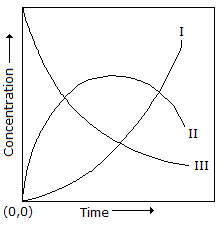Chemical Engineering :: Mass Transfer
-
Which of the following is a suitable absorbent for removal of H2S from natural gas ?
-
Acetone is to be removed from air in an isothermal dilute absorber using pure water as solvent. The incoming air contains 5 mole% of acetone (yin = 0.05). The design equation to be used for obtaining the number of trays (N) of the absorber is, N+2 = 6 log (yin/yout).For 98% recovery of acetone, the number of trays required is/are
-
Schimdt number and Lewis number for pure air at atmospheric conditions are respectively
-
Below is given an equilibrium moisture curve of a substance. State which regions represent free moisture and unbound moisture respectively.

-
Molecular diffusion is caused by the
-
At __________ reflux, theoretical number of plates in a distillation coloumn is calculated using Fenske-Underwood equation.
-
Separation of a mixture of two gases by absorption in the liquid solvent depends upon the difference in their
-
Components, having widely different boiling point in a binary mixture, can be separated using __________ distillation.
-
Which of the following equipments is not used in liquid-liquid extraction ?
-
Pick out the wrong statement.
|
A.
Packed towers are preferred for vacuum operation, because the pressure drop through the packing is less and they (packings) also lessen the possibility of tower wall collapse.
|
|
B.
Packed towers are preferred over plate towers for handling corrosive and foamy liquids.
|
|
C.
Diameter of randomly packed tower is normally more than 1.2 metres.
|
|
D.
Due to uneven supply and improper distribution of liquid, problem of channeling, loading & flooding is generally encountered in packed towers.
|


 Whatsapp
Whatsapp
 Facebook
Facebook

